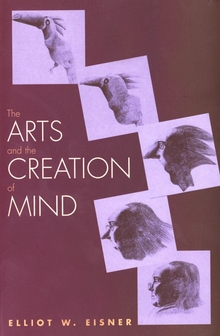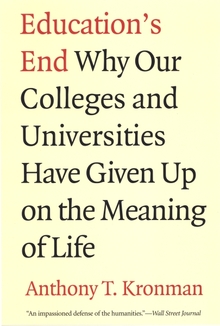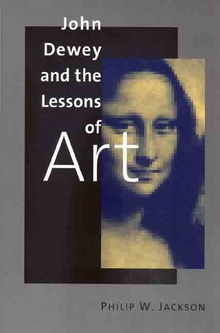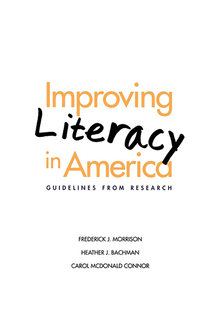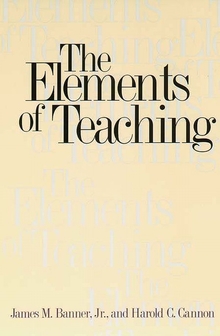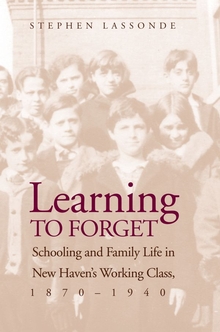The Arts and the Creation of Mind
WARNING
You are viewing an older version of the Yalebooks website. Please visit out new website with more updated information and a better user experience: https://www.yalebooks.com
Elliot W. Eisner
Although the arts are often thought to be closer to the rim of education than to its core, they are, surprisingly, critically important means for developing complex and subtle aspects of the mind, argues Elliot Eisner in this engrossing book. In it he describes how various forms of thinking are evoked, developed, and refined through the arts. These forms of thinking, Eisner argues, are more helpful in dealing with the ambiguities and uncertainties of daily life than are the formally structured curricula that are employed today in schools.
Offering a rich array of examples, Eisner describes different approaches to the teaching of the arts and the virtues each possesses when well taught. He discusses especially nettlesome issues pertaining to the evaluation of performance in the arts. Perhaps most important, Eisner provides a fresh and admittedly iconoclastic perspective on what the arts can contribute to education, namely a new vision of both its aims and its means. This new perspective, Eisner argues, is especially important today, a time at which mechanistic forms of technical rationality often dominate our thinking about the conduct and assessment of education.
Offering a rich array of examples, Eisner describes different approaches to the teaching of the arts and the virtues each possesses when well taught. He discusses especially nettlesome issues pertaining to the evaluation of performance in the arts. Perhaps most important, Eisner provides a fresh and admittedly iconoclastic perspective on what the arts can contribute to education, namely a new vision of both its aims and its means. This new perspective, Eisner argues, is especially important today, a time at which mechanistic forms of technical rationality often dominate our thinking about the conduct and assessment of education.
Elliot W. Eisner is Lee Jacks Professor of Education and Professor of Art at Stanford University.
"Elliot Eisner is long regarded as one of the most eloquent and best informed of those critical of the technicism dominating so many schools. At once, he is known as a trailbreaker in contemporary efforts to make the artistic-aesthetic dimension of experience central in public education’s classrooms. This book reimagines the kinds of reforms needed in education, as it brings together Eisner’s generative notions about learning and teaching, arts-based research, and (climactically) a conception of mind as process, a way of being in and acting upon the world. Encounters with the arts, Eisner tells us, can nurture and enrich mind in its becoming. The very idea of 'creation' in this context opens perspectives on ways of making 'mind' the beating heart of live and humane schools."—Maxine Greene, Teachers College, Columbia University
"Elliot W. Eisner is the preeminent spokesperson for the arts in education. Not since John Dewey has an American scholar written with such insight, power, and grace about the arts and the development of mind. Professor Eisner reveals, through the art of his own thought, the exciting role the arts can play in the education of the nation’s youth. This sensitive vision explains why the arts are justified in education on their own merits."—Michael Day, professor in department of visual arts, Brigham Young University, author of Children and Their Art
"This book is an eloquent addition to any art educator’s library. Eisner’s greatest gift is his ability to perceive and capture, making the ineffable richly apparent. This book represents his lifetime achievement in the arts through compelling discussions by many prominent arts educators. It resonates with Eisner’s work and provokes us to re-think all that we may take for granted. I highly recommend this volume for anyone interested in promoting or studying the arts in education."—Rita C. Irvin, Professor, Department of Curriculum Studies, University of British Columbia
"By illuminating the various ways that making and appreciating art are cognitive endeavors, Eisner invites us to celebrate the uniqueness of art education and entices us to explore the rich connections between thinking and learning in the arts and in other areas."—Shari Tishman, Harvard University
"A good balance to a traditional college text in Educational Psychology that showed how the arts are alike and different as learning processes. This book created the necessary balance for an art ed. program preparing teachers for professional practice."—Sharon Johnson, Maryland Institute College of Art
"Eisner continues with his new book to make important contributions to the field. The book articulates a vision of art education that he has promulgated over a distinguished career. This vision is augmented with recent work in cognitive studies and somatic experience, not to mention an extended discussion of artistry in teaching. The result is a persuasive argument for cultivating the aesthetic form of life."—Ralph A. Smith, Arts Education Policy Review
"Those who know Eisner’s work will view this volume with anticipation and they will not be disappointed. . . . Eisner’s view of education in general and art education in particular is a generous view, deeply felt, and beautifully expressed. Not since John Dewey has an American author written about art, education, and the creation of mind with such power and sensitivity."—Michael Day, International Journal of Arts Education
"[Eisner] does not disappoint in this book; and, in fact, this text could be viewed as the definitive statement of his career. He summarizes all of the key educational arguments he has advanced over the years with very concise terminology and cogent rationales. . . . He has composed a text that is as insightful and inspirational as the educational research he envisions."—James G. Henderson, International Journal of Education & the Arts
"Eisner’s ability to craft understanding through his pedagogically oriented writing is a feature that often distinguishes his work from others in the field. In The Arts and the Creation of Mind, he continues this tradition and offers us a primer for the future. . . . As Eisner’s book draws to an end, one is left with a sense of urgency to explore the arts, a sense of pride in knowing the power of the arts, and a sense of vitality as the arts are embraced as mind creating events. This book will serve as an inspiration for those needing the language to convince policy makers and curriculum developers of the value of the arts in education, while also serving as a vehicle for illustrating the educational aspirations the very best education can offer."—Rita L. Irwin, Journal of Critical Inquiry Into Curriculum and Instruction
"Eloquent."—Library Journal
"In straightforward, accessible language, Eisner takes us deeply into the realm of the arts, a realm of unique, powerful meanings available nowhere else. A life without these meanings is a life impoverished, Eisner explains, and an education that neglects them is similarly impoverished. The arts, here, receive a cogent, richly argued justification as basic in education and in life."—Bennett Reimer, author of A Philosophy of Music Education: Advancing the Vision
The 2005 University of Louisville Grawemeyer Award in Education
ISBN: 9780300105117
Publication Date: September 10, 2004
Publication Date: September 10, 2004
280 pages, 6.125 x 9.25
38 b/w + 9 color illus.
38 b/w + 9 color illus.

